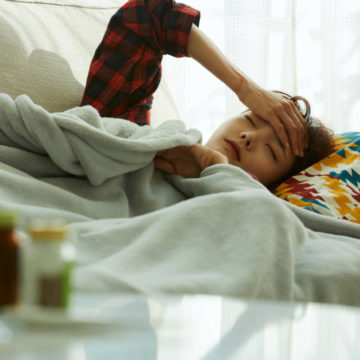As Santa and his elves are busily preparing to deliver presents to millions of children across the globe, many of us are also busily preparing for Christmas. There are presents to be bought and wrapped, Christmas dinner to be planned, relatives to be invited, parties to be attended and all manner of other details to attend to. Christmas can be stressful at the best of times, but for those who suffer from migraines, the activities associated with Christmas can make the condition worse.
Avoid a migraine – get to know your trigger factors
While the exact biological cause of migraine is still to be definitively determined, most experts agree that a migraine attack is usually precipitated by a series of factors, which together trigger a migraine episode. As with many other conditions, the old adage, “Prevention is better than a cure” holds true. With an estimated 190,000 migraine attacks in the UK each day, the average migraine sufferer experiences two migraine attacks each month. As Christmas rapidly approaches, migraine sufferers may experience an increase in migraine attacks. Therefore, it is important for each individual to identify their own particular trigger factors and take steps to avoid them. Avoiding your own unique set of trigger factors can help you to avoid a migraine for Christmas.
Trigger factors associated with the festive season
Stress – can be a major factor for inducing a migraine – just another good reason to make sure Christmas dinner is not held at your place!
Alcohol – many migraine sufferers find that red wine, beer and whisky can trigger a migraine.
Food – Foods to watch include aged cheeses and smoked or aged meats. Skipping meals, dieting and fasting can also contribute to a migraine attack.
Changes in your normal sleep pattern/extreme fatigue – not getting enough sleep, or even too much sleep can induce a migraine.
Cold and Flu – the onset of Winter, and Christmas, signal flu season. Having a cold or the flu places extra stress on your body, which can trigger a migraine, as can your body’s efforts to fight off the flu.
Emotional stress, menstrual periods, smoking, bright and flickering lights, odours and certain medication can also trigger a migraine.
For those who are unsure about their trigger factors, keeping a migraine diary can be a good way to identify them. This diary should include when the migraine began and went away, any associated symptoms, the type and location of pain experienced (sharp, throbbing, left side etc), a list of foods recently eaten, any recent exercise, and the amount of sleep had recently.
How are migraines treated?
There are a number of treatment options depending on the frequency and severity of the migraines experienced. Some people will find that simple analgesics such as paracetamol, aspirin or non-steroidal anti-inflammatory drugs will treat the pain. For others, triptan medicines, such as sumatriptan (Imigran®) are better. For those experiencing several migraines each week, preventative medication that is taken everyday is often the most appropriate choice.
How we can help?
MedExpress offers Sumatriptan and Imigran® . These medications can be taken by those who’ve had a previous diagnosis of migraine from their doctor, and for those who experience less than ten episodes of migraine each month. They should not be used by those experiencing constant headaches, as this is not a usual symptom of a migraine.




